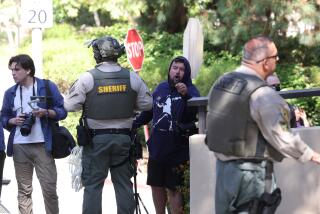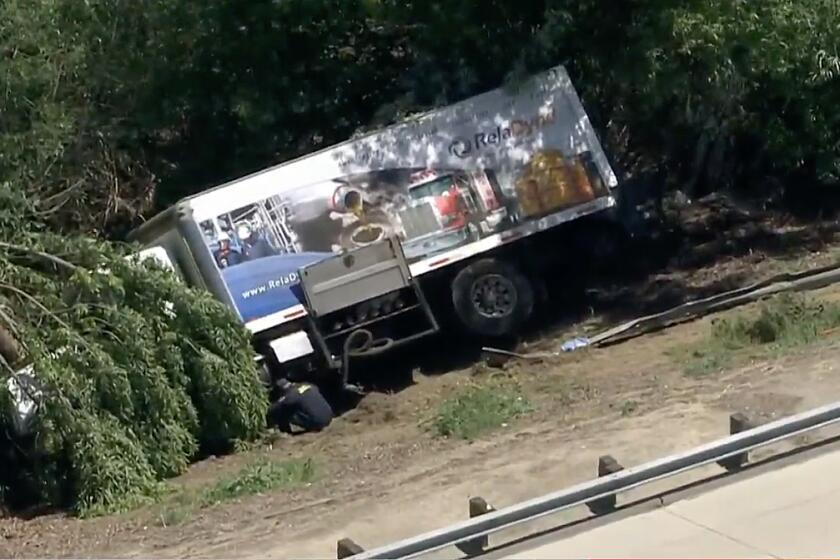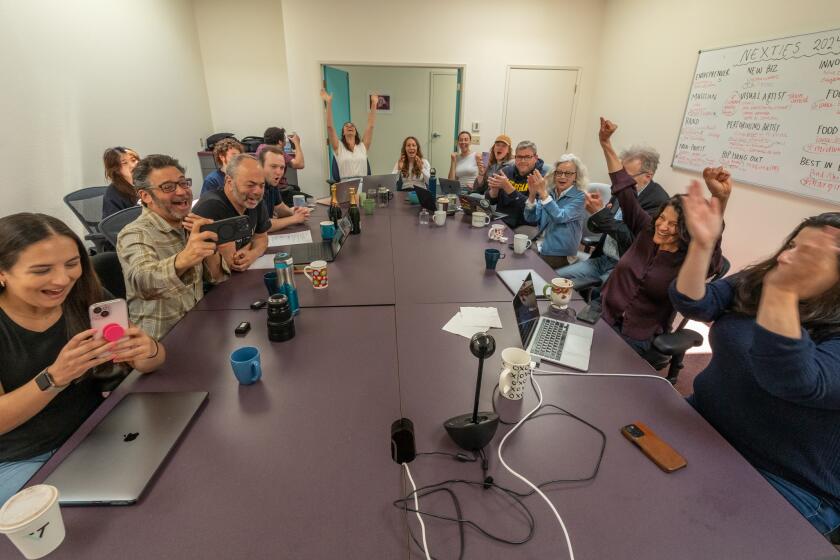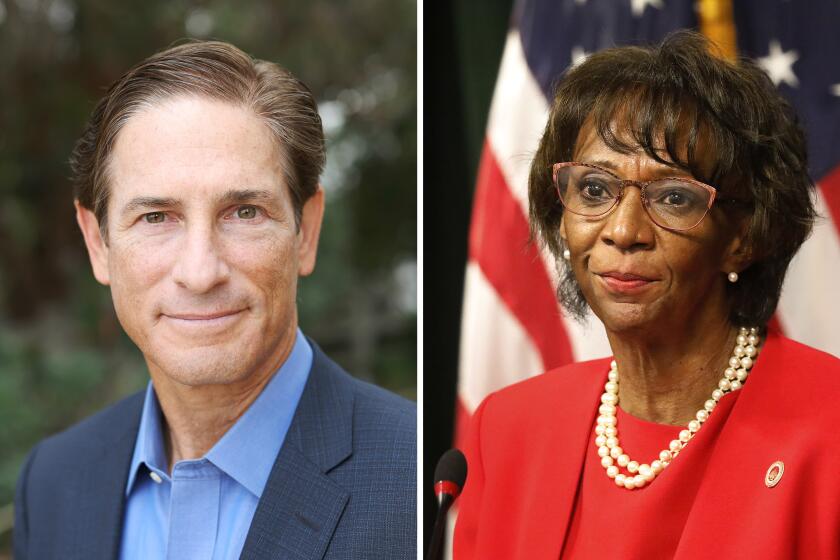Bolsa Chica Sale Hinges on Deal Assuring Cleanup
California is poised to purchase Bolsa Chica this week but is insisting on legal assurances that two oil companies and the current landowner will clean up tainted soil at the Orange County wetlands.
On Saturday, those assurances were being called the linchpin of a complex sale agreement--a way to allow the State Lands Commission to buy the environmentally endangered wetlands without the specter of taxpayers picking up the bill to clean contamination caused by years of private oil operations.
Such protections were being laid out in a cleanup pact that remained incomplete Saturday, while a broad conceptual agreement between private and public parties about how the sale should proceed was said to be moving forward, according to sources close to the discussions who declined to be identified.
A state purchase would be a victory for environmentalists, staving off construction of 900 homes on the ecologically sensitive land and preserving Southern California’s largest unprotected coastal wetlands. If all goes well, officials said, the sale could be approved Wednesday and the land transferred to the state Friday.
Under an ambitious $90-million plan, state and federal agencies would buy the wetlands, restore them, add a tidal inlet and create a major wildlife preserve.
Meanwhile, new details are emerging about the unusual purchase of the land wedged between Huntington Beach and the sea, encompassing 880 acres of salt marshes, ponds and mud flats.
The state would pay $25 million for the land, with funds coming largely from the ports of Los Angeles and Long Beach. The land has been appraised for $31 million in a clean condition, according to one source close to negotiations.
That means the state would be paying less than assessed value for contaminated land, with legal guarantees that it would be cleaned up by private parties--Shell Oil Co. affiliate CalResources, Phillips Petroleum Co. and landowner Koll Real Estate Group.
“Whatever it takes, they do,” one source said in describing the state’s cleanup demands.
Total cost of cleanup is not yet known, but officials say the legal language will protect taxpayers in the still-unsigned cleanup pact between CalResources and the State Lands Commission.
CalResources has been the oil operator at the site since 1986, when it took over from Phillips. In what is being called a key turning point, the oil companies and Koll reached tentative agreement last Wednesday on how to divide cleanup costs.
Negotiations were to continue today.
Their deadline is Wednesday, when the State Lands Commission is due to vote on the purchase.
Two of the panel’s three members on Saturday expressed guarded optimism that they can vote support for the purchase.
California Lt. Gov. Gray Davis, who chairs the commission, confirmed that a conceptual agreement remains in place between the public and private parties.
“If in fact we pull this off, it demonstrates the power of the politics of cooperation rather than the politics of exclusion,” Davis said, noting the number of public agencies and private companies involved. And commission member and state Controller Kathleen Connell said she hopes to “have an agreement that’s environmentally and fiscally responsible.”
But no one is declaring victory yet.
An unexpected glitch developed Friday when an apparent disagreement surfaced between CalResources and Phillips, sources said. And Koll Senior Vice President Lucy Dunn said she’s been called to a Monday meeting to discuss issues with CalResources and Phillips.
“It’s very, very complex discussions,” Dunn said.
One of the more unusual aspects of the deal involves the ports of Long Beach and Los Angeles. In exchange for providing nearly $80 million that will be used to buy and restore the wetlands, the ports would be allowed to proceed with expansion plans immediately.
The expansions in Long Beach and Los Angeles will involve building over marine habitat. Under federal and state law, the ports are required to offset that construction by restoring coastal wetlands elsewhere, officials said.
Normally, the ports would be required to do the restoration themselves before or during construction over marine habitat, as the Port of Los Angeles did when it began an expansion project at the same time it was restoring the Batiquitos Lagoon in Carlsbad.
But this time, the state and federal resource agencies will take the ports’ money and do the Bolsa Chica restoration themselves. That makes it all the more crucial that costs are anticipated.
Also, the Port of Los Angeles has said it needs to know this month that the Bolsa Chica project is assured, since it is about to go to bid on its next expansion project. If the Bolsa deal falls apart, the port must look elsewhere for wetlands to restore.
So those hammering out a deal are holding their breaths.
Said Controller Connell: “We are now in the final few moments of--hopefully--the fourth quarter.”
More to Read
Start your day right
Sign up for Essential California for news, features and recommendations from the L.A. Times and beyond in your inbox six days a week.
You may occasionally receive promotional content from the Los Angeles Times.






